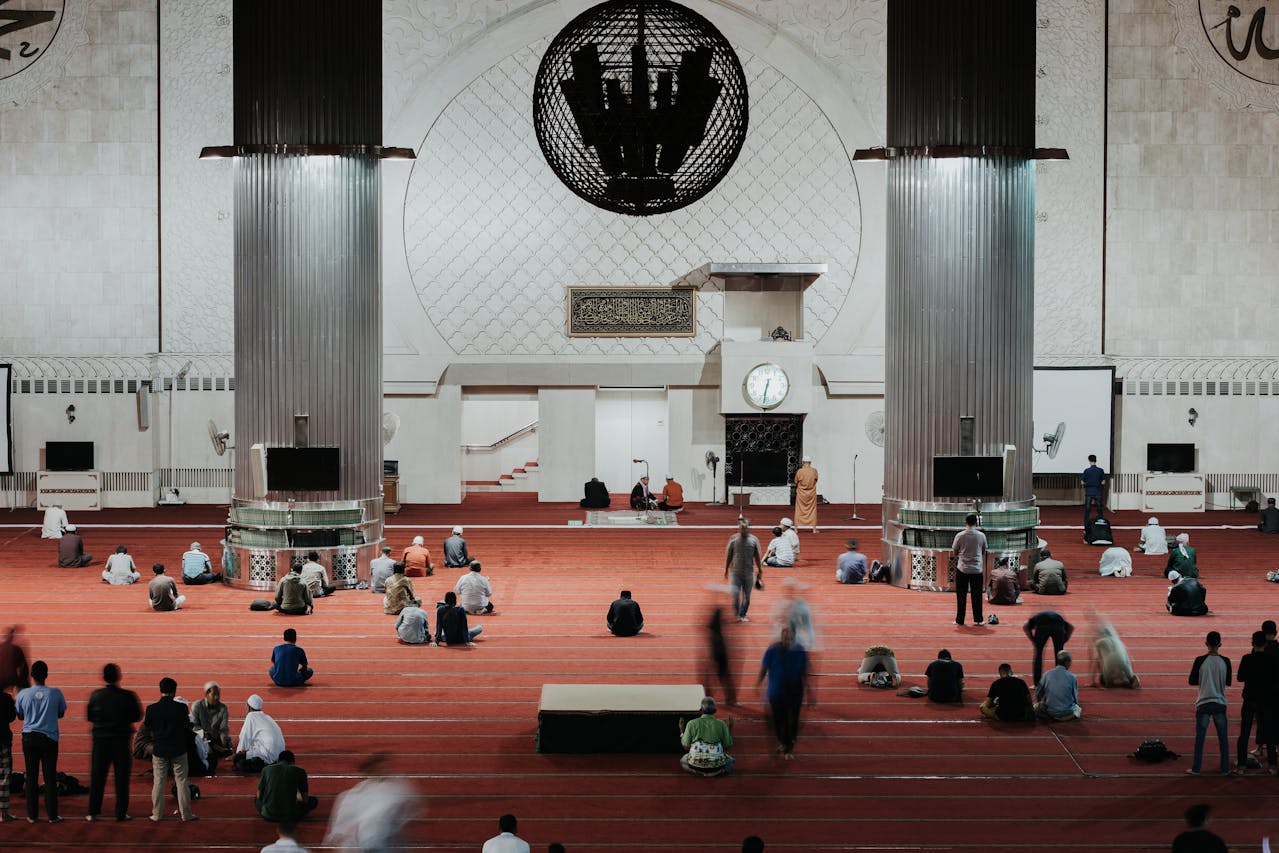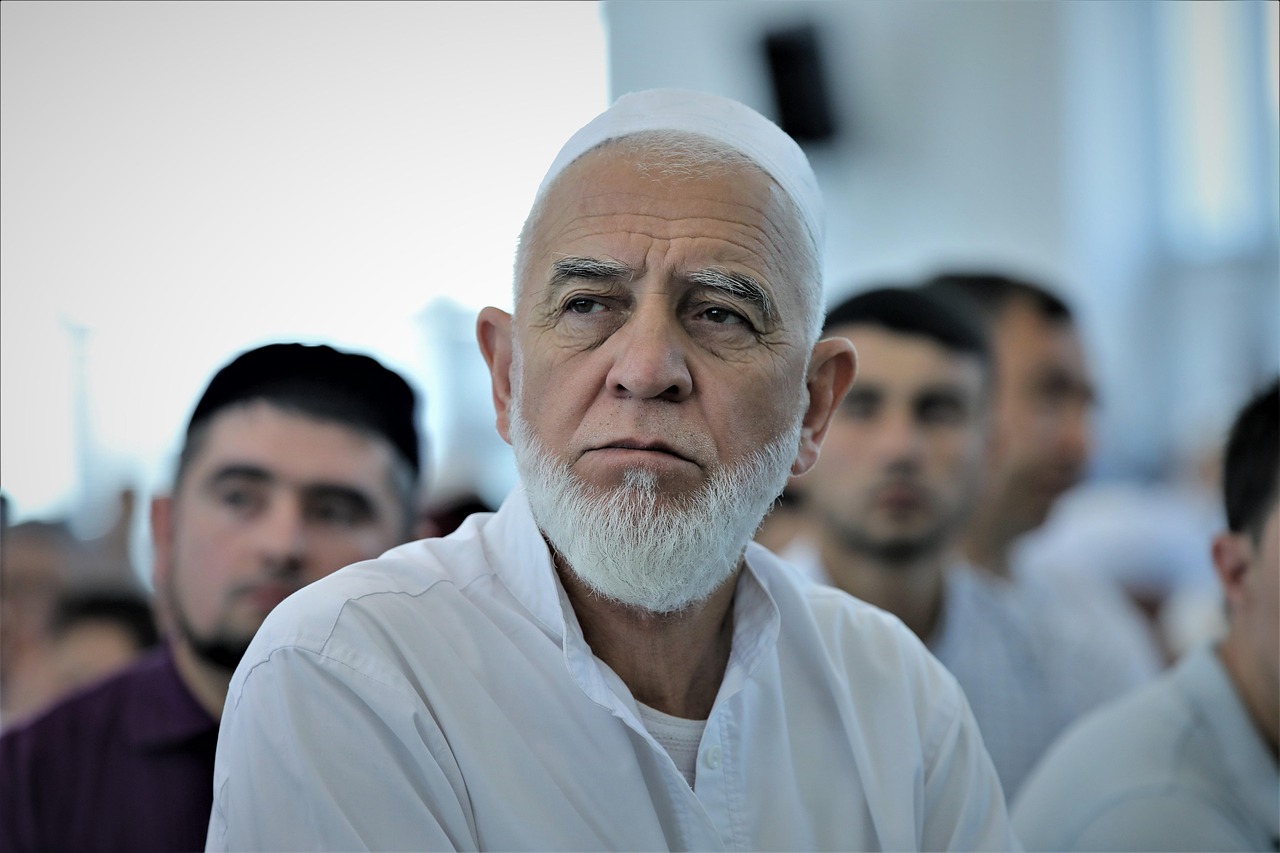Memory is a gift from Allah (سُبْحَانَهُ وَتَعَالَىٰ). We use our memory to read the Qur’an, recall our prayers, understand Hadith, and carry out our responsibilities in life.
Islam values memory, and we’re encouraged to go ahead and ask Allah (سُبْحَانَهُ وَتَعَالَىٰ) for help in order to maintain our minds and keep them strong.
The Prophet Muhammad (صلى الله عليه وسلم) taught many duas to support learning, concentration, and understanding.
These duas are helpful as generations of trusted scholars have used them for memory power, providing help to students and Muslims everywhere.
Whether you are preparing for exams, memorizing Qur’anic verses, or trying to overcome forgetfulness, the Qur’an and Hadith offer solutions.
Let’s explore the authentic and proven duas that Muslims have used for centuries to increase memory retention and reduce forgotten things in their mind.
Dua for Memory and Concentration
Sometimes, minor tasks of everyday life can end up feeling difficult. Your thoughts may jump from one place to another.
You sit down to study or pray, but you can’t focus. This happens to everyone. The best thing to do is ask Allah (سُبْحَانَهُ وَتَعَالَىٰ) to guide your mind.
Which Dua Is For Increasing Memory/Memory Enhancement?
One of the strongest and most effective duas for increasing focus and improving memory is from the Qur’an.
It is the supplication of Prophet Musa (عليه السلام) when he asked Allah (سُبْحَانَهُ وَتَعَالَىٰ) for confidence and clarity before speaking with Pharaoh:
Transliteration: “Rabbi ishrah li sadri wa yassir li amri wahlul ‘uqdatan min lisani yafqahu qawli”
Translation: “My Lord, expand for me my chest. And ease for me my task. And untie the knot from my tongue, that they may understand my speech.”
Source: Qur’an, Surah Taha (20:25-28)
This dua of intelligence and memory is short, easy to memorize, and full of meaning. Students can recite this dua for memory retention before study sessions, during lessons, and even before taking exams.
It helps you stay calm, organized, and focused. The words ask Allah (سُبْحَانَهُ وَتَعَالَىٰ) to give useful knowledge, in information and wisdom that stays with you.
It’s not about memorizing everything at once, but about learning what matters and keeping it in your heart.
Recite this dua regularly to build confidence in your ability to remember and understand what you study.
Dua for Memory and Success in Exams
Exams can bring pressure and stress. Many students feel overwhelmed by how much they need to remember.
Islam encourages Muslims to ask Allah (سُبْحَانَهُ وَتَعَالَىٰ) for success in both learning and remembering.
What Dua Is for Memorising Things Quickly and Increasing Memory Power?
This powerful dua was taught by the Prophet Muhammad (صلى الله عليه وسلم):
Transliteration: “Allahumma anfa‘ni bima ‘allamtani, wa ‘allimni ma yanfa‘uni, wa zidni ‘ilma”
Translation: “O Allah, benefit me with what You have taught me, teach me what will benefit me, and increase me in knowledge.”
Source: Sunan al-Tirmidhi, Hadith 3599
Students can recite this dua for memory before study sessions or exams. It encourages clear thinking and stronger understanding.
Dua for Forgetfulness and Overcoming it
Forgetfulness is part of human nature. Even the Prophet Muhammad (صلى الله عليه وسلم) said that he could forget.
But Islam teaches that remembering Allah (سُبْحَانَهُ وَتَعَالَىٰ) helps protect the mind and heart from forgetfulness.
Does Ayatul Kursi Increase Memory?
Ayatul Kursi is one of the most well-known and important verses in the Qur’an:
Transliteration: “Allahu laaa ilaaha illaa huwal haiyul qai-yoom; laa taakhuzuhoo sinatunw wa laa nawm; lahoo maa fissamaawaati wa maa fil ard; man zallazee yashfa’u indahooo illaa be iznih; ya’lamu maa baina aideehim wa maa khalfahum; wa laa yuheetoona beshai ‘immin ‘ilmihee illa be maa shaaaa; wasi’a kursiyyuhus samaa waati wal arda wa la ya’ooduho hifzuhumaa; wa huwal aliyyul ‘azeem”
Translation: “Allah! There is no god ˹worthy of worship˺ except Him, the Ever-Living, All-Sustaining. Neither drowsiness nor sleep overtakes Him. To Him belongs whatever is in the heavens and whatever is on the earth. Who could possibly intercede with Him without His permission? He ˹fully˺ knows what is ahead of them and what is behind them, but no one can grasp any of His knowledge—except what He wills ˹to reveal˺. His Seat encompasses the heavens and the earth, and the preservation of both does not tire Him. For He is the Most High, the Greatest.”
Source: Qur’an, Surah Al-Baqarah (2:255)
The Prophet Muhammad (صلى الله عليه وسلم) said:
Source: Book 2, Hadith 220
While Ayatul Kursi is not specifically labeled in Hadith as a dua for memory, its benefits go far beyond protection. Scholars and teachers have long recommended it for students and people of knowledge.
When you recite Ayatul Kursi regularly, especially after your prayers, it brings mental clarity and emotional calm. These are key ingredients for better memory. A peaceful mind can absorb and store knowledge more easily.
People who memorize the Qur’an often include Ayatul Kursi in their daily practice because it builds a spiritual shield that keeps away distractions and forgetfulness.
It also strengthens your connection with Allah (سُبْحَانَهُ وَتَعَالَىٰ), which brings barakah (blessing) in all your efforts.
Names of Allah to Recite for Better Memory While Performing Dua
Allah (سُبْحَانَهُ وَتَعَالَىٰ) has 99 beautiful names. Reciting specific names can help when asking for something special, like knowledge or a stronger memory.
Here are a few names to focus on:
- Al-‘Aleem (ٱلْعَلِيمُ): The All-Knowing
- Al-Hakeem (ٱلْحَكِيمُ): The Wise
- An-Noor (ٱلنُّورُ): The Light
- Al-Fattah (ٱلْفَتَّاحُ): The Opener
- Ar-Rahman (ٱلرَّحْمَٰنُ): The Most Merciful
Make a habit of calling on these names in your duas. You can say:
“Yā ‘Aleem (the all knowing), bless me with knowledge and strong memory.”
“Yā Fattah (the opener), open my mind and make understanding easy.”
Using Allah’s names in this way builds spiritual awareness and increases sincerity in your duas.
It also reminds your heart that knowledge and memory come only by His will. Repeating these names with understanding and intention brings focus to your mind and purity to your heart.
Over time, it builds a habit of learning with purpose and humility.
Summary: Duas for Memory
Islam teaches that memory is a trust from Allah (سُبْحَانَهُ وَتَعَالَىٰ). It’s a mental skill as well as a gift that should be protected, nourished, and used for good.
Our memory helps us hold onto the Qur’an, remember our daily prayers, fulfill responsibilities, and live with awareness.
If you want to strengthen your memory, don’t rely only on study techniques or brain exercises. Those can help, but real success begins with turning to Allah (سُبْحَانَهُ وَتَعَالَىٰ).
He is the one who grants understanding, knowledge, and the ability to retain what we learn.
Allah (سُبْحَانَهُ وَتَعَالَىٰ) is Al-‘Aleem, i.e., the All-Knowing. When you sincerely ask Him for help, He opens doors you didn’t even know existed.
By making dua part of your learning routine, you’re not just asking for better memory; you’re placing your trust in the One who gave you your mind in the first place.
This mindset changes the way you study, read, and even think.
To summarize, here are the most valuable ways to seek help from Allah (سُبْحَانَهُ وَتَعَالَىٰ) for improving your memory:
- Recite the dua of Musa (عليه السلام) for mental clarity, calmness, and the ability to express your thoughts clearly.
- Use the dua from Prophet Muhammad (صلى الله عليه وسلم) to increase beneficial knowledge and learn what is useful.
- Recite Ayatul Kursi after each obligatory prayer for daily protection, spiritual strength, and peace of mind, all of which support memory.
- Call on the Beautiful Names of Allah (سُبْحَانَهُ وَتَعَالَىٰ), especially Al-‘Aleem, Al-Fattah, and Al-Hakeem, to connect your heart to the source of all knowledge and wisdom.
Make these duas part of your daily life. Say them before studying, after praying, and in quiet moments during the day.
Say them with full belief in your heart. Do not rush.
Speak to Allah (سُبْحَانَهُ وَتَعَالَىٰ) as someone who hears every word and knows your thoughts even before you say them.
Be patient. Stay consistent. Keep your tongue soft with dhikr and your heart firm in intention.
Allah (سُبْحَانَهُ وَتَعَالَىٰ) listens. He guides. And He provides in ways we cannot imagine.
Strengthen your connection to Him, and you’ll find your memory, understanding, and confidence improving in ways that feel natural and blessed.











